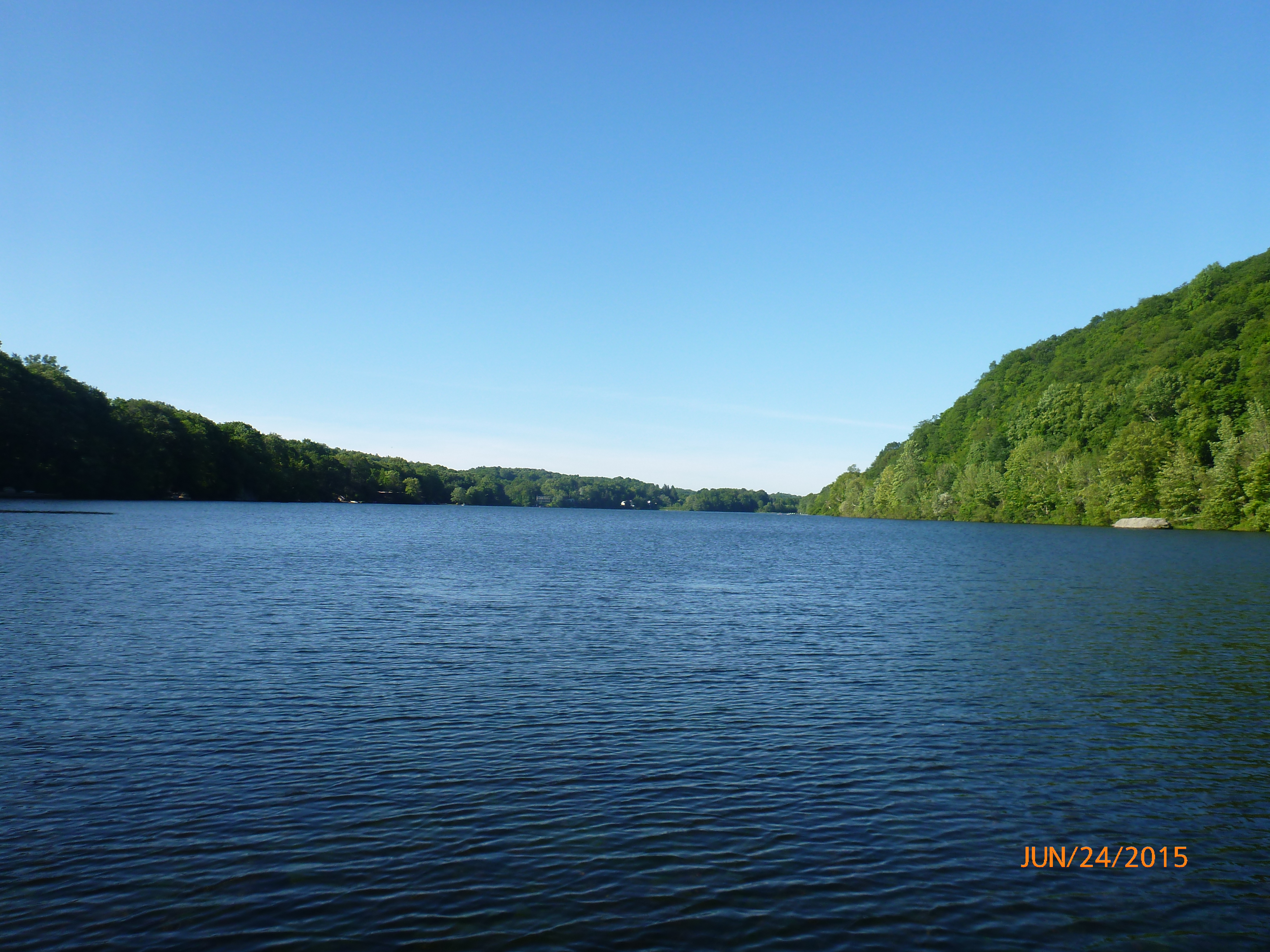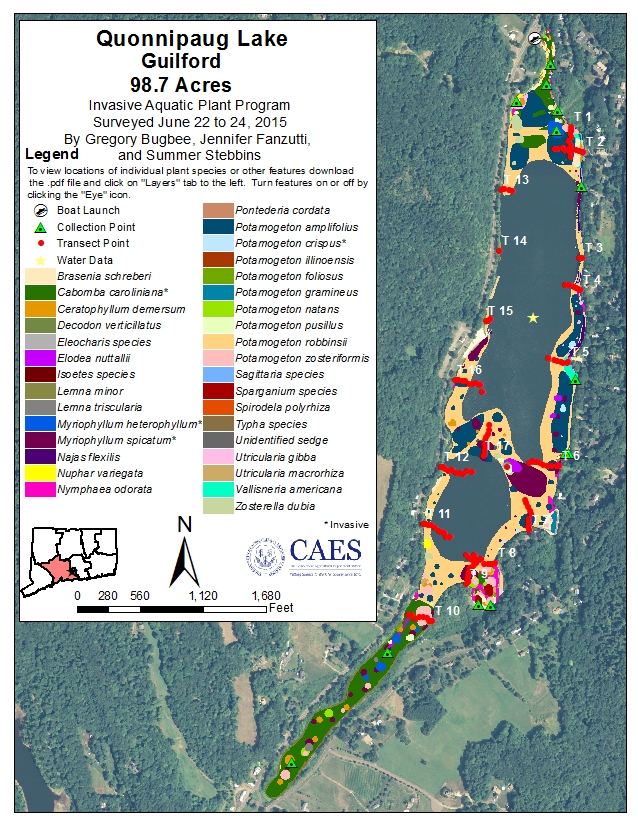Quonnipaug Lake, Guilford - 2015
2015 Aquatic Plant Survey of Lake Quonnipaug
Lake Quonnipaug is a 99-acre waterbody located in Guilford, CT. There is a public boat launch at the northern tip of the lake and a public beach on the western shore. The shoreline is moderately developed with private residences.
The 2015 survey of Quonnipaug Lake found 34 aquatic plant species compared to 27 species found in 2010 and 25 species found in 2004. The invasive species fanwort (Cabomba caroliniana), variable-leaf watermilfoil (Myriophyllum heterophyllum), Eurasian watermilfoil (Myriophyllum spicatum), and curlyleaf pondweed (Potamogeton crispus) were found in all four years.
Between 2004 and 2015, fanwort spread from the southern end of the south channel to the mouth of the channel and from small to large patches in the northern cove by the boat ramp where it became co-dominant along with native Robbins' pondweed (Potamogeton robbinsii). Variable-Leaf watermilfoil spread between surveys in 2004 and 2010 and showed a small reduction in the 2015 survey in the southern channel. This could be due to an increased density in fanwort. Eurasian watermilfoil did not spread much between 2004 and 2015 and occurred sporadically throughout the littoral zone particularly in the southern portion of the lake. Curlyleaf pondweed had a more dominant presence in the northern cove during the 2004 survey but during the 2015 survey was only present in small patches in the north and south coves. The displacement of curlyleaf pondweed could also be from increase in fanwort.
Fanwort was the most dominant species in all years growing in up to 12 feet of water. Large-Leaf pondweed (Potamogeton amplifolius) was also a dominant species growing throughout much of the littoral zone and was often mixed in with Robbins' pondweed.
The coves of the lake contained large patches of native plants including the lily pads watershield (Brasenia schreberi), yellow water lily (Nuphar variegata), and white water lily (Nymphaea odorata) along with common bladderwort (Utricularia macrorhiza). Coontail (Ceratophyllum demersum), western waterweed (Elodea nuttallii), and humped bladderwort (Utricularia gibba) were also present in the coves of the lake in smaller patches.



